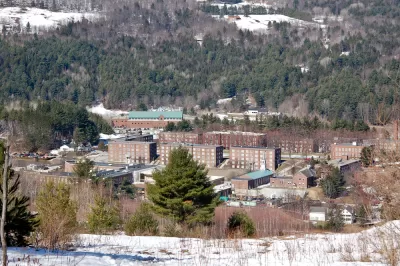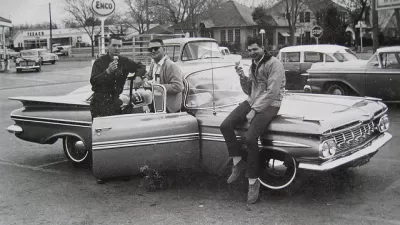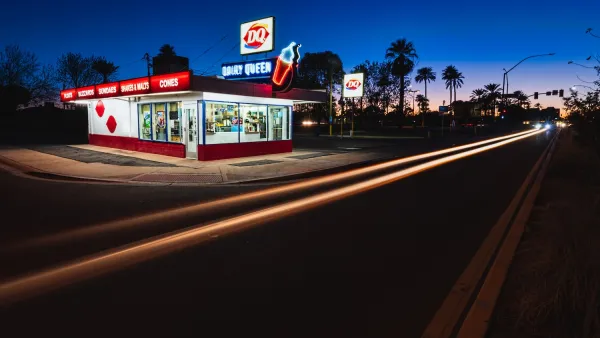Academia's "two-body problem" may be affecting other industries as women pursue more specialized careers and marry similarly educated men. Two-career couples are likely to gravitate toward larger metro areas with job opportunities for both partners.

Women are increasingly earning advanced degrees in specialized fields. Combine this with the fact that people of similar education levels tend to marry one another and highly skilled laborers often have to move for better job opportunities and you have the "two-body problem." The term is commonly used by academics to describe the conflicts that occur when PhD's marry one another. Tenure-track jobs are scarce, highly specialized, and often located in remote college towns, making it difficult for both partners to find a job in the same location.
As the number of women lawyers, doctors, scientists, business executives, and engineers increases, more highly-educated couples outside academia are facing the two-body problem.
The natural solution for many couples is a move to a larger metropolitan area that can provide more career options in a variety of fields. In the nation's largest metro areas, a higher share of couples have two college degree holders, while couples with one college graduate are more evenly distributed.
The two-body problem could mean trouble for smaller towns and cities trying to attract highly-skilled jobs and workers. Local economic developers need to think regionally to cobble together opportunities for skilled workers' romantic partners. More creative working options may also become more common. Many of the top metro areas for telecommuting are small cities with major universities - ground zero for the two-body problem.
FULL STORY: Could the “two-body problem” be contributing to rural brain drain?

Planetizen Federal Action Tracker
A weekly monitor of how Trump’s orders and actions are impacting planners and planning in America.

San Francisco's School District Spent $105M To Build Affordable Housing for Teachers — And That's Just the Beginning
SFUSD joins a growing list of school districts using their land holdings to address housing affordability challenges faced by their own employees.

The Tiny, Adorable $7,000 Car Turning Japan Onto EVs
The single seat Mibot charges from a regular plug as quickly as an iPad, and is about half the price of an average EV.

Seattle's Plan for Adopting Driverless Cars
Equity, safety, accessibility and affordability are front of mind as the city prepares for robotaxis and other autonomous vehicles.

As Trump Phases Out FEMA, Is It Time to Flee the Floodplains?
With less federal funding available for disaster relief efforts, the need to relocate at-risk communities is more urgent than ever.

With Protected Lanes, 460% More People Commute by Bike
For those needing more ammo, more data proving what we already knew is here.
Urban Design for Planners 1: Software Tools
This six-course series explores essential urban design concepts using open source software and equips planners with the tools they need to participate fully in the urban design process.
Planning for Universal Design
Learn the tools for implementing Universal Design in planning regulations.
Smith Gee Studio
City of Charlotte
City of Camden Redevelopment Agency
City of Astoria
Transportation Research & Education Center (TREC) at Portland State University
US High Speed Rail Association
City of Camden Redevelopment Agency
Municipality of Princeton (NJ)





























